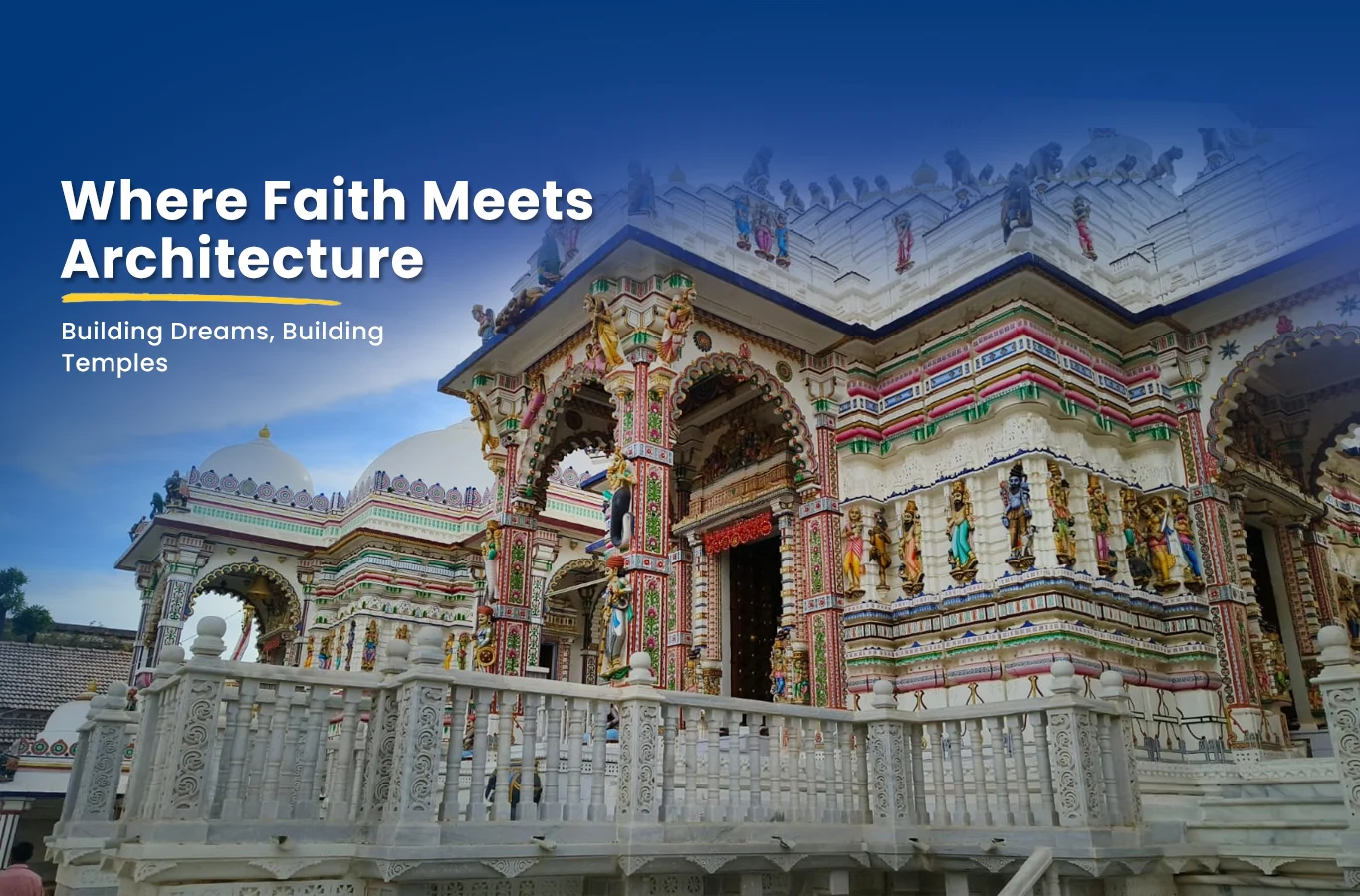Hindu temples, known as Mandirs, are more than architectural marvels; they are sacred spaces that embody spirituality, cultural heritage, and intricate craftsmanship. Constructing these revered structures requires expertise, devotion, and precision, often spearheaded by skilled temple construction contractors. This article explores the crucial role of these professionals in building Hindu mandirs, with a focus on Temple Architects in India, the Jain Temple Sompura community, and Temple Construction Services in Rajasthan.
Understanding the Role of a Temple Construction Contractor
A temple construction contractor is not just a builder but a custodian of tradition and culture. These professionals oversee every stage of construction, from planning and designing to executing the intricate carvings and ensuring alignment with spiritual guidelines like Vaastu Shastra and Shilpa Shastra.
Responsibilities of a Temple Construction Contractor
- Designing with Traditional Principles
Contractors collaborate with Temple Architects in India to create designs rooted in ancient architectural styles like Dravidian, Nagara, or Vesara. These designs often reflect the divine proportions and geometrical precision outlined in scriptures. - Material Selection
Selecting the right materials, such as marble, sandstone, and granite, is a key responsibility. For example, the Jain Temple Sompura community, known for its exquisite craftsmanship, often sources high-quality marble for temples. - Supervising Skilled Artisans
Temple contractors coordinate with teams of sculptors, carpenters, and masons, ensuring that the intricate carvings and sculptures reflect the artistic and spiritual essence of the temple. - Compliance with Spiritual Guidelines
Vaastu Shastra, which governs the placement and orientation of the temple, is central to the construction process. Contractors ensure the temple’s sanctity and functionality by adhering to these principles.
The Influence of Temple Architects in India
Preserving Tradition
India is home to some of the most renowned temple architects, who play a pivotal role in designing and planning mandirs. These architects combine ancient knowledge with modern tools to create temples that honor tradition while meeting contemporary needs.
Collaboration with Contractors
Temple architects provide the blueprints and artistic guidelines that contractors execute. Together, they bring to life the vision of a spiritual sanctuary. The synergy between architects and contractors ensures that the final structure is both aesthetically pleasing and spiritually aligned.
The Legacy of the Jain Temple Sompura Community
The Jain Temple Sompura artisans have earned worldwide recognition for their unparalleled expertise in temple construction. Originating in Gujarat and Rajasthan, this community has contributed to some of India’s most iconic Jain temples.
Mastering Marble Craftsmanship
The Sompura community specializes in intricate marble work, from detailed carvings to life-like sculptures of deities. Their techniques have been passed down through generations, making them invaluable partners for temple contractors.
Collaboration in Temple Construction
Contractors often rely on Sompura artisans to handle the most delicate aspects of temple construction. Their expertise ensures that the temple is not only structurally sound but also artistically magnificent.
Temple Construction Services in Rajasthan: A Hub of Heritage
Rajasthan, with its rich history and abundant natural resources, is a hub for temple construction in India. The state offers a range of services that cater to the unique needs of temple projects.
Specialized Services
- Design and Planning: Many firms in Rajasthan provide end-to-end solutions, from architectural design to structural planning.
- Stone Carving: With its reserves of high-quality marble and sandstone, Rajasthan is a prime location for sourcing temple materials.
- Restoration and Preservation: The state is also known for its expertise in restoring ancient temples to their former glory.
Why Rajasthan Stands Out
The combination of skilled artisans, abundant resources, and a deep-rooted cultural connection to temple architecture makes Rajasthan a preferred destination for temple construction services.
Challenges Faced by Temple Construction Contractors
Balancing Tradition and Modernity
While ancient techniques are revered, modern tools and technologies can enhance efficiency. Contractors must find a balance between preserving tradition and incorporating innovation.
High Costs of Authentic Materials
Sourcing premium materials like marble and granite can be expensive. Contractors must manage budgets while maintaining quality.
Adhering to Spiritual Guidelines
Ensuring that the temple aligns with Vaastu Shastra and other spiritual principles requires meticulous planning and execution.
The Future of Temple Construction
The demand for new temples and the restoration of ancient ones continues to grow. With advancements in technology and a renewed interest in preserving cultural heritage, the role of temple construction contractors will evolve. Tools like 3D modeling and CNC machines can complement traditional methods, ensuring that the art of temple construction thrives for generations.
Conclusion
Temple construction contractors are the backbone of mandir projects, blending ancient wisdom with modern techniques to create structures that inspire devotion and awe. From collaborating with Temple Architects in India to leveraging the expertise of the Jain Temple Sompura artisans and utilizing the resources of Temple Construction Services in Rajasthan, these professionals play a pivotal role in preserving India’s spiritual and cultural legacy.
By honoring tradition while embracing innovation, temple construction contractors ensure that Hindu mandirs continue to serve as sacred spaces and architectural wonders for future generations.

